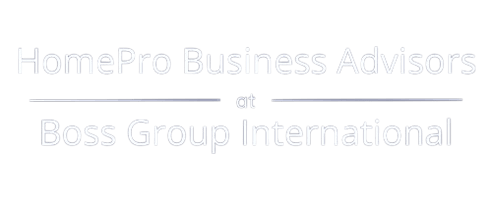Metrics that Matter - Property Management


Metrics That Matter: What Property Management Business Owners Need to Know Before Selling
Owning a property management business in Florida can be highly lucrative, given the state’s booming rental market, strong demand for HOA management, and influx of real estate investors. If you’re considering selling your business, you need to understand that buyers aren’t just looking for the number of properties you manage, they want to see a scalable, profitable, and well-structured company with recurring revenue and operational efficiency.
Buyers evaluate specific financial and operational metrics before making an offer. This guide will break down the key metrics buyers care about, Florida-specific licensing and legal considerations, and actionable steps to maximize the value of your business before selling.
Why Metrics Matter When Selling a Property Management Business
Selling a property management company is different from selling a real estate firm or rental portfolio. Buyers are looking for:
- Recurring, predictable revenue from management fees.
- Long-term contracts with property owners, investors, or HOAs.
- A stable, diversified client base (no over-reliance on one or two major accounts).
- Efficient operations, powered by modern property management software.
- Full compliance with Florida’s licensing and legal requirements.
A property management business that meets these criteria is far more attractive to buyers and will command a higher valuation than one that is disorganized or dependent on the owner.
Florida’s Property Management Industry: Why Buyers Are Interested
Why Florida?
Florida’s real estate market remains strong, driven by:
A steady influx of new residents and investors.
A high percentage of rental properties, creating consistent demand for management services.
The need for professional HOA and vacation rental management in popular tourist areas.
Who’s Buying?
Real estate investment groups looking for in-house property management.
Existing property management firms expanding into new markets.
Private equity firms acquiring service-based businesses.
What Buyers Care About:
Stable, recurring management fees (not just one-time leasing fees).
Contract lengths and renewal rates.
Profitability and fee structures.
Licensing and compliance (Florida-specific requirements).
Technology and operational efficiency.
Top Metrics Buyers Analyze When Evaluating a Property Management Business
1. Total Units Under Management & Revenue Per Unit
What It Is: The total number of properties under contract and the average monthly revenue per unit.
Why It Matters: Buyers want a scalable business with strong per-unit profitability.
What Good Looks Like:
200+ units under management with consistent revenue per unit.
Red Flags:
Low revenue per unit due to underpriced management fees.
Too few properties under management to generate stable profits.
2. Recurring Revenue from Management Fees
What It Is: The percentage of revenue from monthly management fees vs. one-time fees (leasing, maintenance, late fees, etc.).
Why It Matters: Buyers pay a premium for predictable, recurring revenue.
What Good Looks Like:
70%+ of revenue comes from monthly management fees.
Red Flags:
Over-reliance on one-time leasing or maintenance fees rather than recurring contracts.
3. Contract Length & Renewal Rates
What It Is: The average length of client contracts and how often they are renewed.
Why It Matters: Buyers want businesses with long-term stability.
What Good Looks Like:
2-5 year contracts with a 90%+ renewal rate.
Red Flags:
Short-term contracts with high turnover among property owners.
4. Client Concentration & Risk
What It Is: The percentage of revenue tied to your top clients.
Why It Matters: Buyers prefer businesses that aren’t reliant on a handful of large clients.
What Good Looks Like:
No client makes up more than 10-15% of total revenue.
Red Flags:
One or two property owners control most of the revenue - if they leave, the business suffers.
5. Licensing & Compliance (Florida-Specific)
What It Is: Property managers in Florida must hold the proper licenses to legally operate.
Why It Matters: A business without proper licensing is unsellable.
What Good Looks Like:
Active Community Association Manager (CAM) license or real estate broker license.
Compliance with Florida tenant laws, security deposit rules, and escrow account regulations.
Red Flags:
Operating without a licensed broker or CAM-certified manager.
Non-compliance with Florida’s strict escrow and tenant deposit laws.
6. Profit Margins & Operational Efficiency
What It Is: Profitability after covering costs (staff, software, marketing, etc.).
Why It Matters: Buyers want businesses with strong margins and low overhead.
What Good Looks Like:
Net profit margins of 20-30%.
Red Flags:
Low profitability due to high overhead or inefficient operations.
Operational Elements That Impact Value
Technology adoption - Buyers prefer businesses using property management software (Buildium, AppFolio, Propertyware).
Legal and compliance structure - Proper handling of escrow accounts, lease agreements, and tenant deposits.
Reputation and online presence - Strong Google reviews, Yelp ratings, and BBB accreditation increase buyer confidence.
Financial transparency - CPA-reviewed clean financials make deals smoother.
Common Mistakes Sellers Make in the Property Management Industry
Not having formal contracts - Buyers want documented agreements with property owners.
Over-reliance on a few big clients - High revenue concentration increases risk.
Messy financials - Mixing personal and business expenses confuses buyers.
Non-compliance with Florida laws - Issues with escrow, security deposits, or licensing can kill deals.
Failing to use property management software - Buyers expect digital operations.
Actionable Tips to Improve Key Metrics Before Listing
Secure long-term contracts - Aim for 2-5 year agreements with property owners.
Increase recurring revenue - Shift from one-time fees to monthly management fees.
Diversify your client base - Avoid having too much revenue from a few clients.
Ensure licensing compliance - Verify CAM or real estate broker license (if required).
Invest in property management software - Streamline scheduling, accounting, and tenant communication.
Optimize profit margins - Eliminate unnecessary overhead and renegotiate vendor contracts.
Clean up financial records - Ensure CPA-reviewed books are ready for due diligence.
Strengthen online reputation - Encourage client reviews and address complaints proactively.
Conclusion: Preparing Your Florida Property Management Business for Sale
Florida property management businesses are in high demand, but buyers expect recurring revenue, strong contracts, and a well-run operation.
By focusing on scalability, operational efficiency, and compliance, you can increase your business’s valuation and attract serious buyers.
If you're considering selling, start optimizing these metrics now so you’re in the best position when the time comes.
Thinking of selling your Florida Property Management business?
Contact us for a confidential discussion and learn how to maximize your company’s value before going to market.
